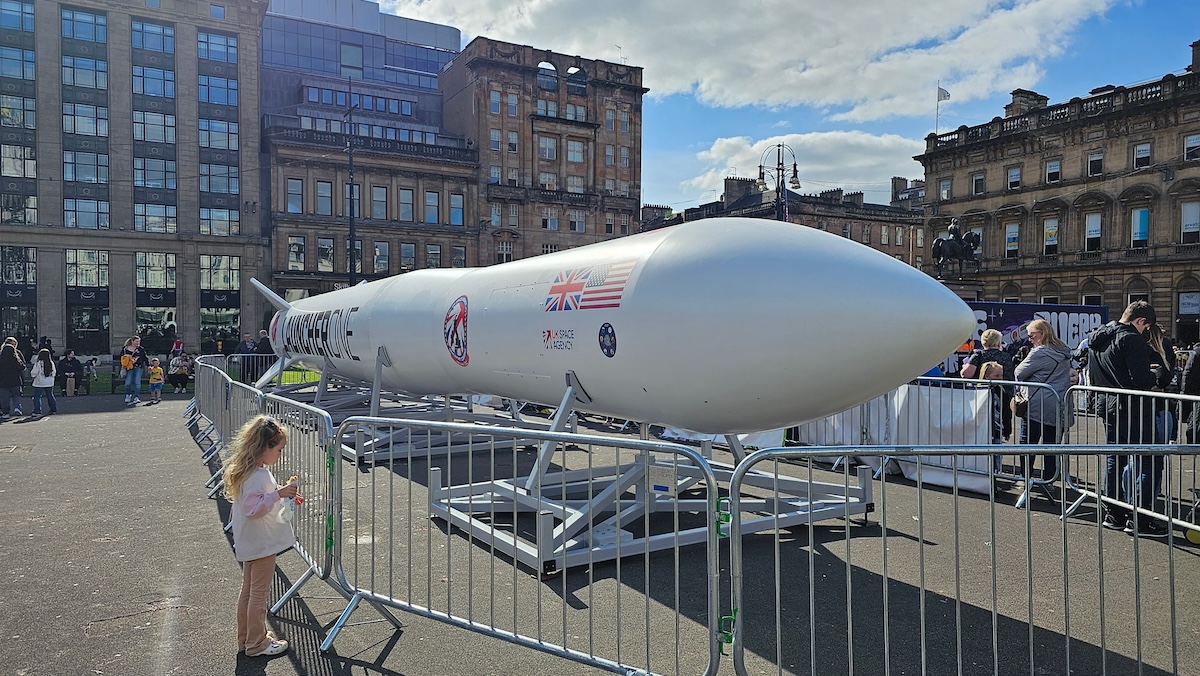Glasgow has established itself as Europe’s leading hub for small-satellite manufacturing, producing more ‘CubeSats’ and ‘PocketQubes’ than any other city on the continent, according to a new report.
Companies such as AAC Clyde Space, Alba Orbital, and Spire Global are driving growth across the city’s space sector – from design and build through to data and analytics, cementing the city’s reputation as a world-class cluster.
The sector is also scaling at pace, per the new ‘spotlight‘ report commissioned by Glasgow City Council.
Spire Global, based at Skypark, now operates one of the world’s largest CubeSat constellations, delivering real-time data on weather, aviation, and maritime activity. AAC Clyde Space has pioneered advanced CubeSat missions for the European Space Agency, while Alba Orbital has grown from bedroom prototypes to a dedicated factory, lowering the cost of entry into space with its affordable PocketQubes.
The smaller size of satellites now allows equivalent levels of technology to be installed in vessels that are under 10 kilogrammes in weight that used to require much bigger and bulkier designs. With advances in nano-technology, the cost of entry to market has lowered, allowing smaller companies to join the space revolution.
This upstream success is matched by downstream innovation, with a growing number of Glasgow companies harnessing satellite data for use in climate science, logistics, insurance, and infrastructure. The city’s proximity to Scotland’s emerging spaceports, including SaxaVord in Shetland, further strengthens its role in end-to-end space capability—spanning build, launch, and data exploitation.
With sustained employment growth, cutting-edge R&D, and a thriving entrepreneurial ecosystem, Glasgow’s space industry is one of the UK’s most compelling success stories—offering investors, innovators, and policymakers a dynamic environment where space technology is driving real-world impact.
And it’s not just the hardware. The report shows that the city is benefiting from links to world-class universities and colleges, with a highly skilled stream of graduates and researchers who are turning academic labs into orbit-capable technologies and companies.
Key institutions including the University of Strathclyde, University of Glasgow, and Glasgow Caledonian University are central to this transformation. Facilities such as Strathclyde’s Space Institute and the University of Glasgow’s I-SET cluster are equipping students with cleanrooms, vacuum chambers, 3D printing labs, and even ESA-funded chambers for lunar and Martian environment simulation.
Glasgow’s “lab-to-orbit” model does more than educate – it de-risks investment, speeds up innovation, and ensures the UK can compete in the global space race.
The city is also solidifying its position as a leading UK space technology hub through strong alignment with government strategy and major public-sector investment. Through initiatives such as the UK’s National Space Strategy, Scotland’s Space Strategy & Space Scotland, and the Space Sustainability Roadmap, the city is actively participating in shaping capabilities in sustainable launch, Earth observation, and responsible space operations.
One highlight is the push toward “net-zero satellites” – not just greener launchers like Skyrora, but also using satellite imagery and earth observation (EO) data to support climate monitoring, emissions accounting, and environmental management. This dual approach ties Glasgow’s space activity into both environmental policy and economic development.
Another priority is extending digital and connectivity infrastructure. Rural and remote areas – including Scotland’s islands – are being served via low-Earth orbit broadband trials such as OneWeb in Shetland, demonstrating how space tech is helping to bridge the digital divide.
Councillor Susan Aitken, leader of Glasgow City Council, said: “It is no secret that Glasgow has a very successful space sector – in fact, the city produces more satellites than anywhere else in the world outside of Houston and is a growing part of our current and future economy. This status as a global capital for the space industry is something to be proud of, but more importantly it means jobs, growth and future prosperity. Key to the growth of the space industry in Glasgow is the very strong partnership between the public, private and academic sectors and our focus on supporting businesses in areas with high-growth potential.”
